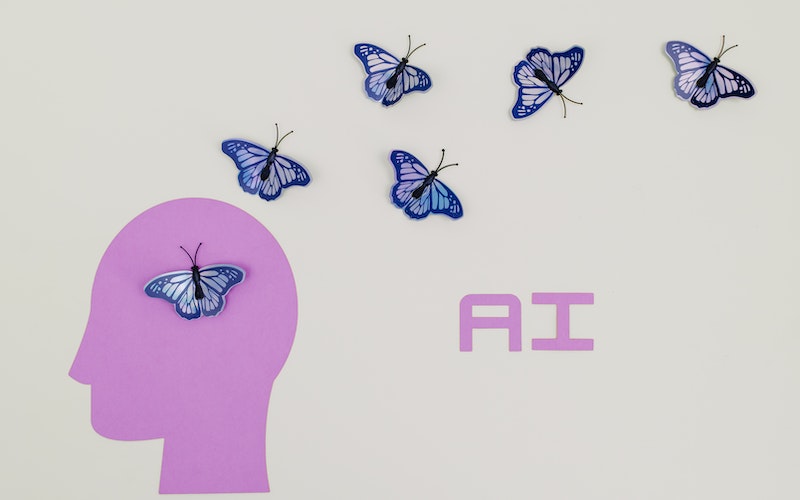Chat GPT is taking the Twitterverse, headlines, and business conversations by storm. It famously reached its first 1 million users within 5 days of being released. Microsoft’s $10B pending investment in OpenAI, the developer of ChatGPT, ignites the imagination with the endless possibilities of use cases that could be enabled by combining Chat GPT functionality with everyday applications that help us write and analyze documents in Word, convey our talking points and strategies via PowerPoint, or decide the best approach to building models in Excel.
Many worry that Chat GPT and AI like it will mean the end of jobs and entire industries, similar to initial fears of the impact of the internet and websites. But the past innovations spawned entirely new industries that were similar in many ways. Digital marketing and SEO have become mainstay industries that grew out of the initial wave of digital innovation. Then newly available tools like big data, analytics, and information at our fingertips empowered professionals to find new ways of providing value, mostly through adding context or expertise on how to use these new tools. Google saw an opportunity to “organize the world’s information and make it universally accessible and useful.” Chat GPT takes this to the next level by distilling this immense volume of information, giving it context, and applying it for our needs.
Much of the progress in the application of AI so far has been in the background; computer vision to collect information for manufacturing or smart cities, ad targeting based on user behavior, and IT optimization. Chat GPT provides value out in ways that are more obvious to consumers, not just back-end developers or digital marketing professionals. If the first industrial revolution decoupled physical work from the muscle of human beings and animals, this AI-driven industrial revolution will decouple cognitive work from the brains of human beings, allowing us to have a machine handle this work for us, and nearly free, yet again making us vastly more productive and efficient at what we do. Today the costs of Chat GPT are 10-100 times the cost of a Google search but we can expect these costs to decline rapidly, according to Sam Altman, CEO of OpenAI.
As AIs like Chat GPT rise in capability and availability, what are some tangible ways that Chat GPT and AI tools like it will spark new jobs, businesses, and drive the AI economy?
- Creators: Chat GPT will further enable the creator economy by empowering prosumers to create more and better content, and lead to a proliferation of new and evermore specialized writing, imagery, and videos for public consumption.
- Personal Economics: Autonomous Economic Agents, as Fetch.AI calls them, will seek to fulfill goals for you out into the digital or real world based on your request. Find the best haircut at your price point, build travel itinerary, determine an investing strategy or auction, buy or sell goods for you, or even find best gifts at negotiated price for selected person in your life. They can find, optimize, buy, and sell for you using smart contracts to create economic value for you without the need for an intermediary.
- Sustainability: Intelligent chatbots can help drive sustainability by making personalized recommendations for more sustainable products, services, and approaches to our lifestyles or work, especially when we have a specific choice to consider. It also could empower environmental educators to make content more engaging and helpful and help professionals understand how their businesses can be more sustainable or find new opportunities in sustainable markets.
- Education: AI can help us tailor education to each student, and even learn their learning pace and preferences so that curriculum is more effective for each student, and coursework can be done independently, leaving class time for collaboration and project-based learning.
- Science: Researchers now have a tool that can save them hours of time by finding, distilling, and reporting complicated scientific information for audiences of different levels of familiarity with or sophistication in the topic.
- Entrepreneurship: New businesses are already springing up leveraging the Chat GPT API, and many more will follow as the market fills more niches or more productive AI substitutes. The opportunities include:
- Consultants could provide chat query expertise similar to today’s SEO specialists, who will engineer queries to get the desired result, basic coding and software consulting powered by targeted Chat GPT code queries, automated tech support and expert trainings.
- Many AI arbitrage opportunities for entrepreneurs who deeply understand how to use Chat GPT in areas that can be complicated or inconvenient for the average consumer, or adds new value in a targeted way. This could include fast artistic image manipulation and illustrators for personalized scenes, mockups, or avatars, and specialized AI copywriters for articles, speeches, product descriptions, screenplays, workshops, meeting agendas, tutorials, books, etc.
- APIs will make automated AI services available to more companies and mask the source of the intelligence, which may also commoditize the back end. This includes specially-trained models and real-time support plugins for advanced visualizations and analysis.
- Courses can be created with ChatGPT and sold on Udemy and other platforms, providing any number of trainings such as Excel and PowerPoint tutorials, leadership or professional skills training, cooking, new business, and many other tutorials and training.
The democratization of AI like Chat GPT will lead to a proliferation of new startups, services, and products that make our economy more abundant from a consumer perspective, but also for founders, creators, and prosumers. We will see a boom in content and content services especially, which will be led by the entrepreneurs who dive into the new AI economy. In addition to creating immense opportunity, this will also exacerbate the divide between those who leverage AI and those who don’t. We will likely see challengers to established players, and a flurry of investment and M&A in the space.
How widely this will impact the economy and the consequences of it remain to be seen, but it could lead to a wave of layoffs and creative destruction of established businesses and approaches to content creation, research, professional services, and education. As more and more economic activities become automated, we may be looking at a revolution of a similar magnitude as the last industrial revolution. The question for humanity is what we will choose to do with our minds once we are liberated from many of the tasks that we assign to our minds today that can be handed over to an AI.
While fears may be justified that we could face mass unemployment and a replacement of human tasks that give us meaning, AI could also free us to amplify our capabilities and economy, drastically reducing the time and costs required for making content and doing business, while creating more abundance than ever before. Most likely it will be a mix of the two and stabilize over time. What is clear is that we have an opportunity to leverage AI to build a better future if we choose to apply it deliberately with ethics, intelligence, and creativity.
Justin Bean is an impact-focused tech executive who has worked with Fortune 500s, Silicon Valley startups, and non- profit organizations to achieve triple-bottom-line (people, planet, profit) results, as an intrapreneur, consultant, mentor, and thought leader. He is the author of the new book What Could Go Right: Designing Our Ideal Future to Emerge from Continual Crises to a Thriving World.











